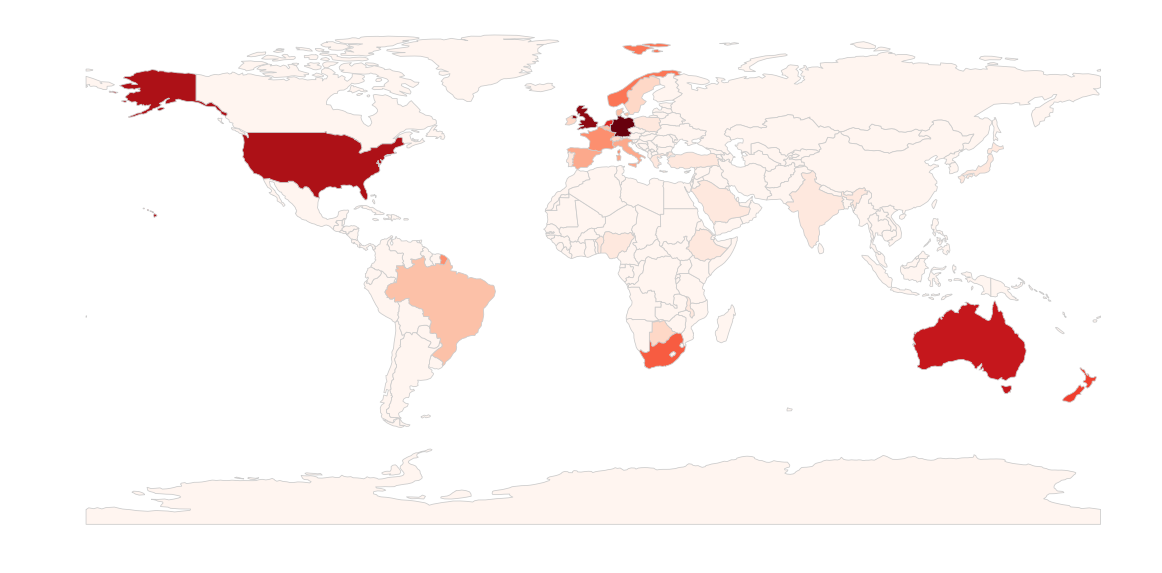What do we know about RSEs? Results from our international surveys
Posted on 12 March 2018
What do we know about RSEs? Results from our international surveys
By Olivier Philippe, Policy Consultant, and Simon Hettrick, Deputy Director.
 RSEs in the world in 2018.
RSEs in the world in 2018.Since 2016, the Software Sustainability Institute conducts surveys of Research Software Engineers (RSEs) to learn more about them and their work conditions. The RSE community has grown from a concept born at an Institute event to an international phenomenon. It's important to learn more about this community so that our campaigning, and that of our international partners, continues to help RSEs gain the recognition they deserve for their huge contribution to research.
Partners
We began surveying RSEs for UK in 2016. In 2017 we added Canada, Germany, Netherlands, South Africa and United States and released the survey in English, French and German. In 2018, Australia and New Zealand joined the effort and we released the survey as the "International RSE survey. In 2022, we added a Spanish translation of the survey.
Links to dataset and analysis
Below you can find a link to individual reports and dataset for each country which participated to the survey.
| Countries | 2016 results | 2017 results | 2018 results | 2022 results |
|---|---|---|---|---|
| Australia | N/A | N/A | Analysis / Public data | Analysis / Public data |
| Canada | N/A | Analysis / Public data | ||
| Germany | N/A | Analysis / Public data | ||
| Netherlands | N/A | Analysis / Public data | ||
| New Zealand | N/A | N/A | ||
| United Kingdom | Analysis / Public data | Analysis / Public data | ||
| United States of America | N/A | Analysis / Public data | ||
| South Africa | N/A | Analysis / Public data |
Composition of the survey
The base questions for the survey were tailored to meet the requirements for each country. They covered ten subjects:
- Demographics: traditional social and economic questions, such as gender, age, salary and education.
- Coding: how much code do RSEs write, how often, and for whom.
- Employment: questions about where RSEs work and in which disciplines.
- Current contract: understanding stability of employment by questioning the type of employment contract RSEs receive.
- Previous employment: understanding routes into the profession and the reasons for choosing it.
- Collaboration and training: who RSEs work with, how many people they work with, and the training they conduct.
- Publications: do RSEs contribute to publications and are they acknowledged?
- Sustainability: testing, bus factor, and technical handover.
- Job satisfaction: what do RSEs think about their job and their career?
- Network: how do RSEs meet and gain representation?
